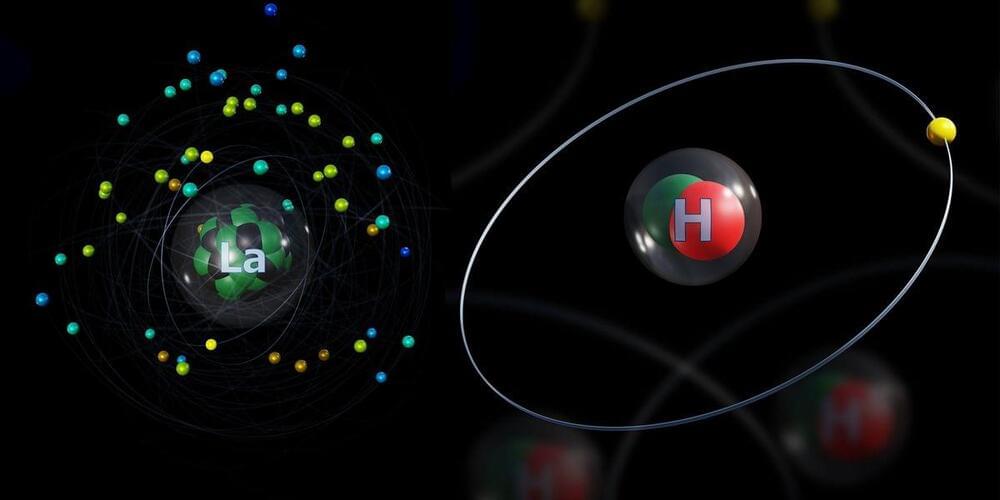A new superconducting compound offers a bridge to more practicals with a potentially attractive range of applications, according to new research. And the new material’s strange magnetic behavior recalls classics of decades ago—but this time in a material that’s already demonstrated its near-room-temperature bona fides.
Lanthanum hydrides—which combine atoms of the rare earth metal lanthanum with atoms of hydrogen—contain a range of superconducting materials of varying properties. One noteworthy material is lanthanum decahydride (LaH10), which boasts the world’s highest accepted superconducting transition temperature, at −23 °C. (The catch is that to achieve this feat, lanthanum decahydride must be subjected to 200 billion pascals of pressure.)
Now a different lanthanum hydride (La4H23) has revealed similar if not quite equally impressive superconductivity stats. (Its transition temperature is −168 °C at 122 billion Pa.) However, the new lanthanum hydride also has revealingly peculiar magnetic properties that suggest an unexpected family resemblance to the superstar of the superconductivity world, cuprates.










Leave a reply